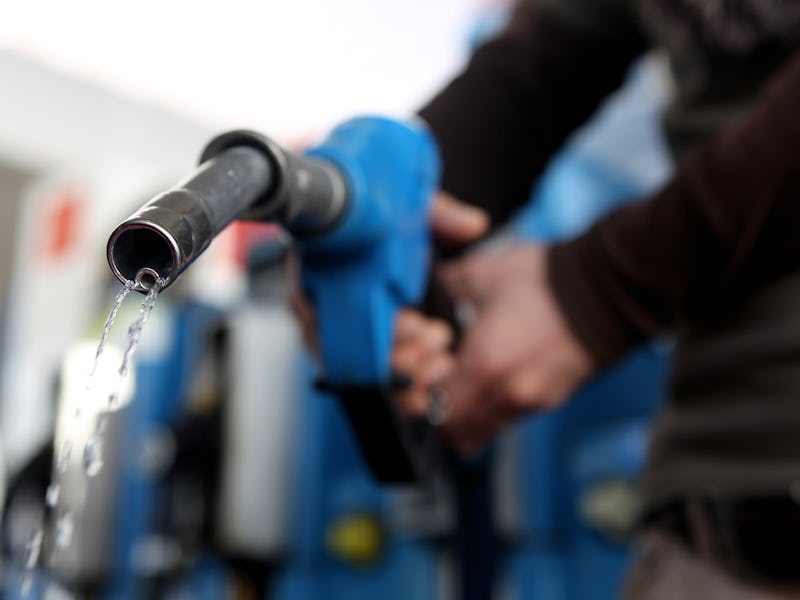International Energy Agency Chief Says Gasoline Demand Will Soon Peak
This is the dawn of the electric vehicle era.

Gasoline is ubiquitous. Most people travel by getting in their cars, driving for a while, and then refueling at a gas station to begin the cycle anew. That could change, however, because the International Energy Agency predicted Monday that electric vehicles will displace their gas-guzzling counterparts in greater numbers during the decades between now and 2040.
Fatih Birol, the IEA’s Executive Director, said on Monday that “electric vehicles are happening,” reported Bloomberg. He expects companies like Tesla, perhaps the best-known of the electric cars, to reach more consumers as it becomes easier to choose cars that use renewable power over the CO2-belching vehicles that currently dominate the roads.
Royal Dutch Shell plc Chief Financial Officer Simon Henry said earlier this month that global demand for oil could peak between 2021 and 2031.
“We’ve long been of the opinion that demand will peak before supply,” Henry said during in a November 1 conference call. “And that peak may be somewhere between 5 and 15 years hence, and it will be driven by efficiency and substitution, more than offsetting the new demand for transport.”
The IEA’s World Energy Outlook 2016 report that 150 million electric vehicles will be on the road by 2040; it estimates that 1.3 million are being driven today. This surge in popularity is expected to lead to a reduction in oil usage by passenger cars.
Yet that won’t be enough to reduce the world’s reliance on gasoline. “Global oil demand continues to grow until 2040,” the IEA said. “Mostly because of the lack of easy alternatives to oil in road freight, aviation and petrochemicals.” Failing to find alternative fuel sources in these sectors will prevent the world from reaching the 2-degrees Celsius goal for climate change.
The search for those alternative fuels is on. Germany will introduce the world’s first hydrogen train in 2017. The train will hold up to 300 passengers; travel between 370 and 500 miles on a single tank; and emit only steam and compressed water.
Work has also begun on clean jet fuels. Alaska Airlines recently held the first cross-country flight with a plane using biofuel derived from wood. It only used a 20 percent blend of the biofuel, but it still emitted 70 percent less CO2 than if it had made the same flight with petroleum fuels.
Efforts to make it easier to drive electric vehicles, like the coming renewable energy corridors in 35 states, will help reduce individual gas consumption. Until those other areas move to clean energy sources, though, the effect this could have on climate change will be limited.